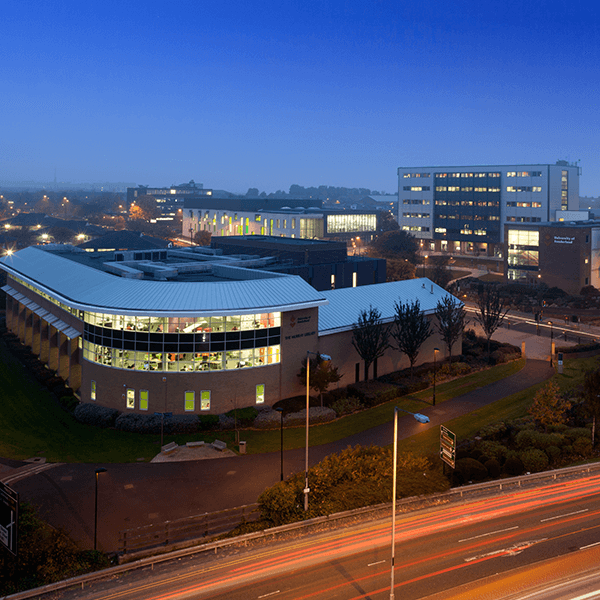If you are applying for this course from outside the UK click apply now.
Course starts: 15 September 2025Apply now
If you are applying for this course from within the UK click apply now
Course starts: 15 September 2025Apply now
Close
Solve some of the most interesting and important health problems in the world today. Contribute to healthcare at both ends of the spectrum, from diagnosis and disease profiling to drug discovery and development. Enhance your employability and gain real-world experience with an optional placement.
While biomedical scientists work on diagnosis and disease profiling and biopharmaceutical scientists work on drug discovery and development, biochemistry sits directly in between these disciplines and contributes to healthcare in both areas.
You will examine the origin of life, the study of disease and the complex chemistry and developmental biology of whole organisms. Study areas including biological chemistry, cell biology, clinical chemistry and molecular biology.
Our teaching methods address different learning styles and provide a diverse learning experience. The course integrates traditional lecture and laboratory-based learning with active, experiential and enquiry-based learning.
You will be taught via laboratory practical work, tutorials, lectures, seminars, group work and e-learning. We also encourage you to develop independent study skills.
This course shares a common first year with BSc (Hons) Biopharmaceutical Science and BSc (Hons) Medicinal Chemistry, which allows you to easily change course at the end of the first year should one of these routes appeal to you.
Our typical offer is:
| Qualification | Minimum grade |
|---|---|
| High School Diploma along with one of the following at the required grade: SAT I and SAT II, ACT or Advanced Placement | GPA 3.0 or above and: Sat score of 1100/1600 from SATs AP (Grades 3+ in at least 2 subjects) ACT (score of 26+) |
If you don't meet our standard entry requirements, you can take one of the foundation pathways at our partners ONCAMPUS Sunderland. Find out more information and whether your course is eligible on our ONCAMPUS page.
If your qualification is not listed above, please contact the Student Administration team at studentadmin@sunderland.ac.uk for further advice.
A Levels must include Chemistry at grade C. Please note we do not accept General Studies AS or A Level. We accept T Level Science only.
Our admissions policy uses a range of flexible options to support you in studying with us. This may include a reduced offer of up to 16 UCAS tariff points, (or equivalent). Find out if you are eligible.
If English is not your first language, please see our English language requirements.
The annual, full-time fee for this course is:
*Undergraduate fees are set according to rules from Government in line with forecast inflation. The fee for your first year of study for 2025/26 will be £9,535. You will pay tuition fees for every year of study. Fees may increase every year based on the Retail Price Index.
Read more about EU fees and funding in our Help and Advice article.
Take a look at the scholarships and bursaries that may be available to you.
This information was correct at the time of publication.

Biochemists are employed in an increasingly wide range of roles in biological, environmental and clinical fields, with employment opportunities stretching from healthcare through forensic science to the food and pharmaceutical industries.
Companies that have employed our graduates include pharmaceutical multinationals such as GSK, FUJIFILM Diosynth Biotechnologies, Pfizer and AstraZeneca.
The employability of Sunderland graduates reflects our mix of academic rigour and practical skills. To enhance this mix, we encourage you to apply to undertake a one-year placement between your second and final year.
Placements provide an invaluable opportunity to put your learning into practice and understand the context for your new knowledge. As part of the course you will also make several industry visits.
You’ll be taught by passionate academic staff with a broad range of relevant research interests including:
This course gives you the opportunity to develop skills which you can use in a range of employment situations including:
The people are friendly, but what I like the most is that it is pretty calm here.
